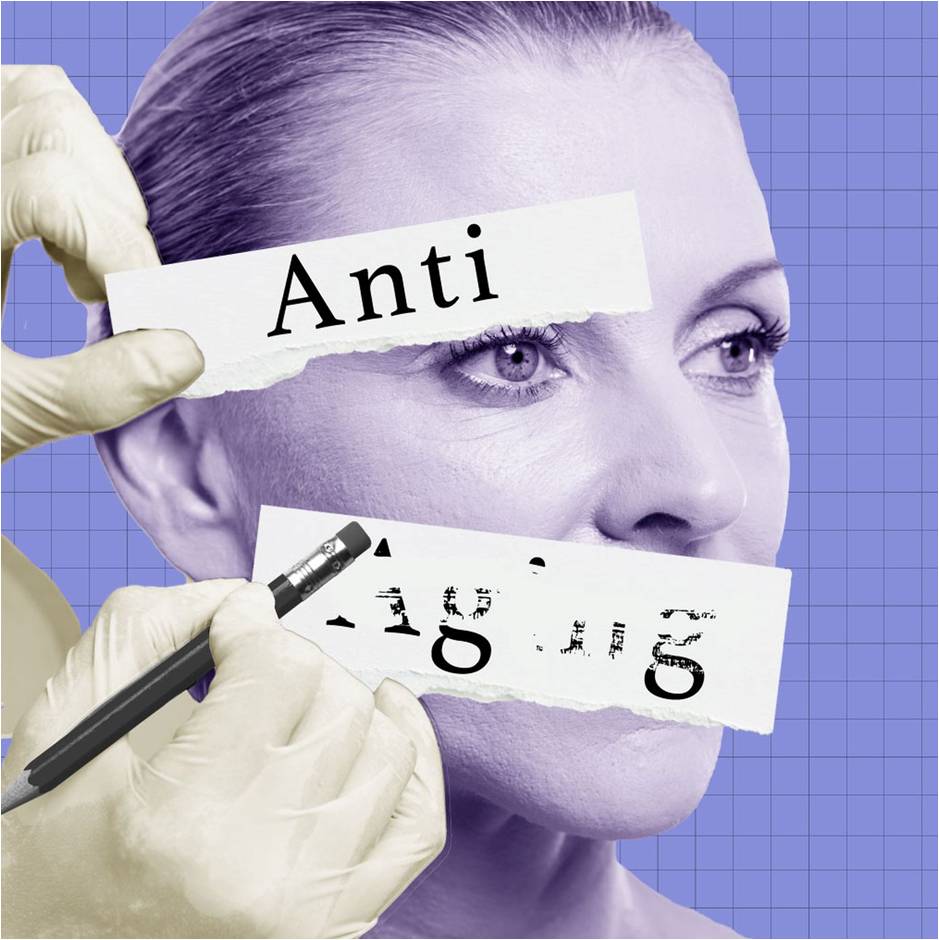According to the Cambridge English Dictionary, the definition of anti-ageing is the use of substances that are intended to prevent or limit the process of becoming old. Collins English Dictionary defines anti-ageing as any product or procedure that claims to reverse or slow down the effects of ageing. Is there such a product or treatment, which can actually reverse or slow down ageing?! Can a product or treatment slow down what natural ageing does?!

How does ageing happen?
This is a natural process that occurs in the skin. As we age, our skin turnover slows down, so the skin might look dull, and less blood supply and nutrients go to the cells. Collagen production slows down. Elastin fibers break down. This leads to sagging skin and wrinkles. Fat loss between skin and muscle, so sagging skin and structure moves (e.g. sunken eyes). Dark spots (pigmentation, ‘age spots’) are more visible, resulting in an uneven skin tone. So, can a product or treatment reverse this natural process?
A marketing hype?!
Anti-ageing has become a buzz word that we seem to see around us all the time. The marketing world leads us to believe that a product or treatment can reverse or stop the natural process of ageing. When we go to the products aisles, we see lots of creams that are labelled as anti-ageing, and unfortunately they charge quite a price for a product that has an anti-ageing label, but does not do anything to slow down the ageing process.
Alternatives to anti-ageing?!
So the trick is to prevent premature ageing, and focus on healthy ageing or age management.
While some ingredients such as prescription Retin A (Tretinoin) has lots of evidence that it can boost collagen, the best is to prevent lifestyle habits that age our skin faster.
Lifestyle habits to adopt to prevent premature ageing:
- Sun protection. Ultraviolet radiation from the sun rays are the number one culprit in skin damage, resulting in premature ageing. UVA rays in particular, damage the cells of the skin, which result in damage to the production of collagen and elastin. While, this damage is not reversible, it is never too late to protect your skin against the sun. Use a broadspectrum (UVA & UVB) sunscreen – reapply throughout the day, and apply every single day (even in winter, on cloudy days, and if staying indoors), as the UVA comes through clouds and windows. Also wear clothing that has a UPF (ultraviolet protection factor), wear a wide brimmed hat with UPF (I like the Comhats), and big sunglasses that especially cover the sides of your eyes.
- Avoid smoking. Smoking causes free radical damage to the skin, leading to premature wrinkling.
- Apply a moisturizer. Regularly keep your skin hydrated, as if the skin barrier is damaged, it leads to sensitivity and fine wrinkles.
- Sleep on your back. Train yourself to sleep on your back on a good pillow (either a sloped pillow or one like the Sleep and Glow Pillow). Sleeping on a regular pillow on your side, tends to squash your face and cause premature wrinkles.
- Exercise moderately regularly. Even a 30 minute walk daily can help with an increase in blood flow, which increases nutrients to your cells.
- Minimize stress. Sometimes this is easier said that done, but excessive stress causes the body to be off-balance, leading to cells not functioning at optimal levels.
- Eat healthy. In particular reduce amount of processed food and high sugary foods (including alcohol). Eat more vegetables, and lots of colours.
Comments
Please feel free to comment below in any way you think you can contribute to this community – to share your experience with healthy ageing and age management, and products/ingredients that you have found that work well for your skin, …
